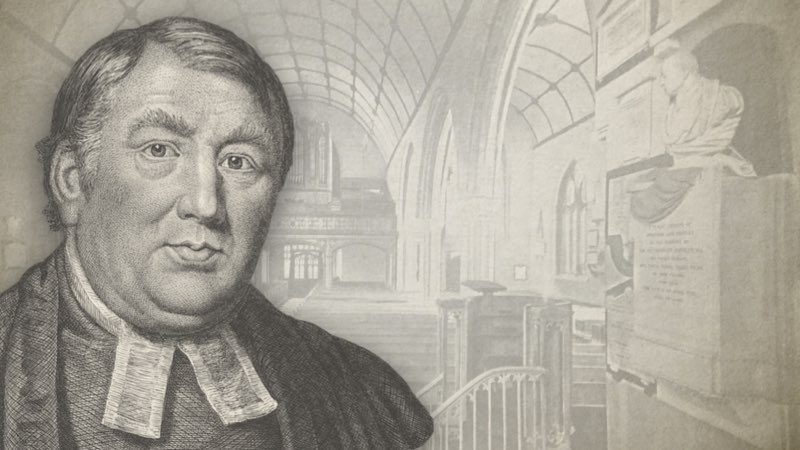
June 5—Morning Devotion
“Have ye received the Holy Ghost?”—Acts 19:11
My soul, ponder over the solemn question again and again, and then see what answer thou canst give to a point so infinitely interesting and important. The Holy Spirit is clearly known by the exercise of his blessed offices in every heart where he abides, and where he is the glorious inhabitant. He comes in Jesus’s name as an ambassador, to propose to the sinner a rich and precious Saviour. He comes as au almighty teacher; and this condescending office he graciously exerciseth in convincing of sin, and convincing of the righteousness of Jesus. He comes as an advocate; and by his pleading the cause of a poor sinner’s own necessities, and the cause of a rich Saviour’s willingness and ability to supply all these necessities, he manifests himself a most powerful advocate, when, by his constraining grace, he makes the poor sinner willing in the day of his power. He comes as an enlightener of the dark and untutored mind of the sinner. And this he doth most effectually, when, by shining in the heart, he gives “the light of the knowledge of the glory of God, in the face of Jesus Christ.” Most gloriously he shines upon the soul, when, by the ministry of his blessed word, and by the influences of his divine grace, he leads the mind forth to the contemplation and love of the person, blood, and righteousness of the Lord Jesus Christ. He comes as a witness also to testify of Jesus. And this sweet office is manifested in the conscience when at any time he shews sin to be exceedingly sinful, and that nothing but the blood of Jesus can cleanse from it. And his witness in the soul is proved to the fullest demonstration, when he powerfully brings the guilty conscience under so deep a sense of sin, and so alarmingly concerned for the consequences of it, that nothing will satisfy until Jesus is revealed and brought home to the heart in all the beauties of his Person, and the fulness and suitableness of his salvation, and formed there the hope of glory. He comes also as a Comforter; and Oh how sweetly and fully doth he manifest both the power of his Godhead and the sovereignty and grace of his character, when, by his consolations, as he opens and explains them, and makes application of them as they are in Jesus, he revives the drooping spirit, relieves the depressed spirit, animateth, refresheth, sanctifieth the whole heart, and soul, and mind, and gives a joy and peace in believing, abounding in hope by the power of the Holy Ghost. My soul, what sayest thou now to the question? “Hast thou received the Holy Ghost?” Surely, I do know thee, thou gracious God the Spirit, by these sweet tokens of thy covenant office and character. Lord, I pray thee, be ever with me, and, agreeably to Jesus’s gracious promise, abide with me for ever. Oh may I never grieve thee, by whom my soul is sealed in Jesus to the day of eternal redemption.
Robert Hawker (1753-1827) was an Anglican (High-Calvinist) preacher who served as Vicar of Charles Church, Plymouth. John Hazelton wrote of him:
“The prominent features…in Robert Hawker's testimony…was the Person of Christ….Dr. Hawker delighted to speak of his Lord as "My most glorious Christ.” What anxious heart but finds at times in the perusal of the doctor's writings a measure of relief, a softening, and a mellowing? an almost imperceptible yet secret and constraining power in leading out of self and off from the misery and bondage of the flesh into a contemplation of the Person and preciousness of Christ as "the chiefest among ten thousand and the altogether lovely." Christ and Him crucified was emphatically the burden of his song and the keynote of his ministry. He preached his last sermon in Charles Church on March 18th, 1827, and on April 6th he died, after being six years curate and forty-three years vicar of the parish. On the last day of his life he repeated a part of Ephesians 1, from the 6th to the 12th verses, and as he proceeded he enlarged on the verses, but dwelt more fully on these words: "To the praise of His glory Who first trusted in Christ." He paused and asked, "Who first trusted in Christ?" And then made this answer: "It was God the Father Who first trusted in Christ."
Robert Hawker on the Biblical Covenants (Complete)
Robert Hawker's Poor Man's Morning Portions




